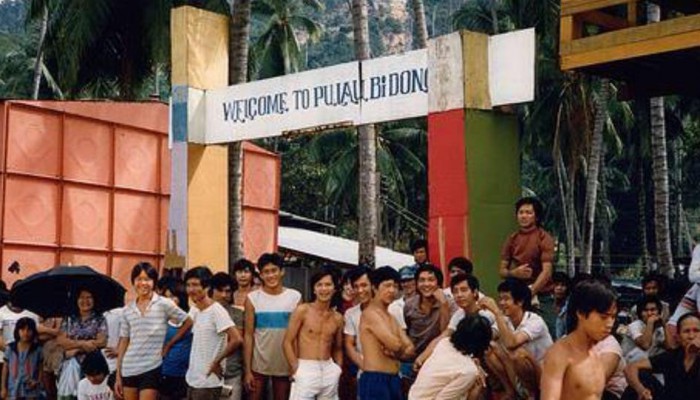Vietnamese Refugee Facebook Reunions
After the Vietnam War, Vietnamese represented one of the twentieth century’s largest movements of refugees. From 1976 to 1990, over 500,000 Vietnamese were resettled all over the world. Facebook has since facilitated the development of the Vietnamese communities on-line who reunite in real time based on their identity as former refugees. With reference to a specific refugee camp or rescue boat, former refugees, humanitarian aid workers, and war veterans reconnect with the past and create a unique self-curated archive of historical documents for research about historical memory, community development in the digital diaspora.
When you leave the camps, you cannot imagine that you may one day reconnect with the people you shared life with there.”
There are children of refugees that have even found friends that their parents referred to from the camps. The ability to find your former refugee friends on Facebook and reconnect in real life is a testimony of survival and community development in the digital diaspora. As a child refugee, it is a unique experience to find pictures of yourself or receive film footage of your past. A couple of years ago, I went to Paris to track down the refugee group on the boat on which I was rescued. Based on a picture that my father had of the boat reunion and the help of Tess Do, a colleague here at the University of Melbourne, I was able locate the one Vietnamese doctor that was working with Medicine Du Monde that was a part of my rescue. As a researcher, I was at a loss for questions or words in meeting with him.
These moments of survival awe happen often, especially at the in real time reunions of Vietnamese refugees in the digital diaspora. In March of 2018, one of the largest community groups of Vietnamese on-line is the “Pulau Bidong Alumi”. One of my key informants invited me to the reunion even though it was not my camp. The familiarity of listening to sentimental Vietnamese music over the loudspeakers, Vietnamese women in the kitchen preparing the wealth of food, sharing of stories of life since, and constant taking pictures of one another was evidence of survival awe. More than a million died at sea on these boat journeys, and here we were sharing a meal in Melbourne together. There were many posts to Facebook that day.
